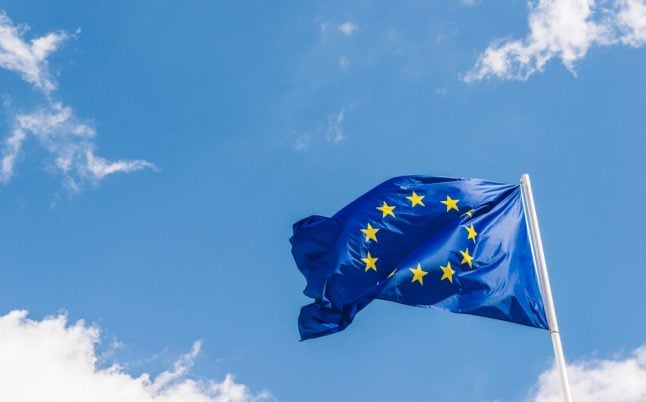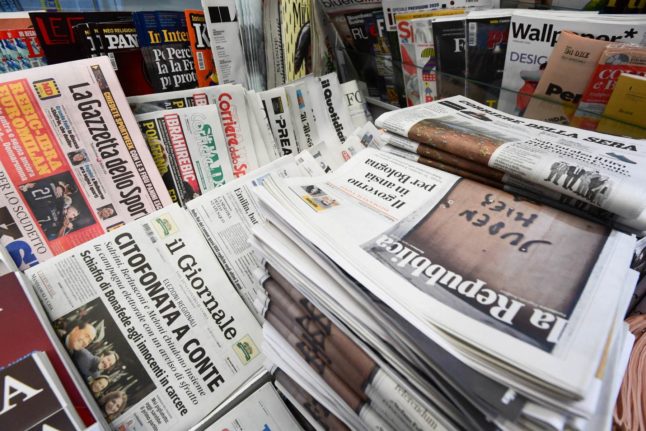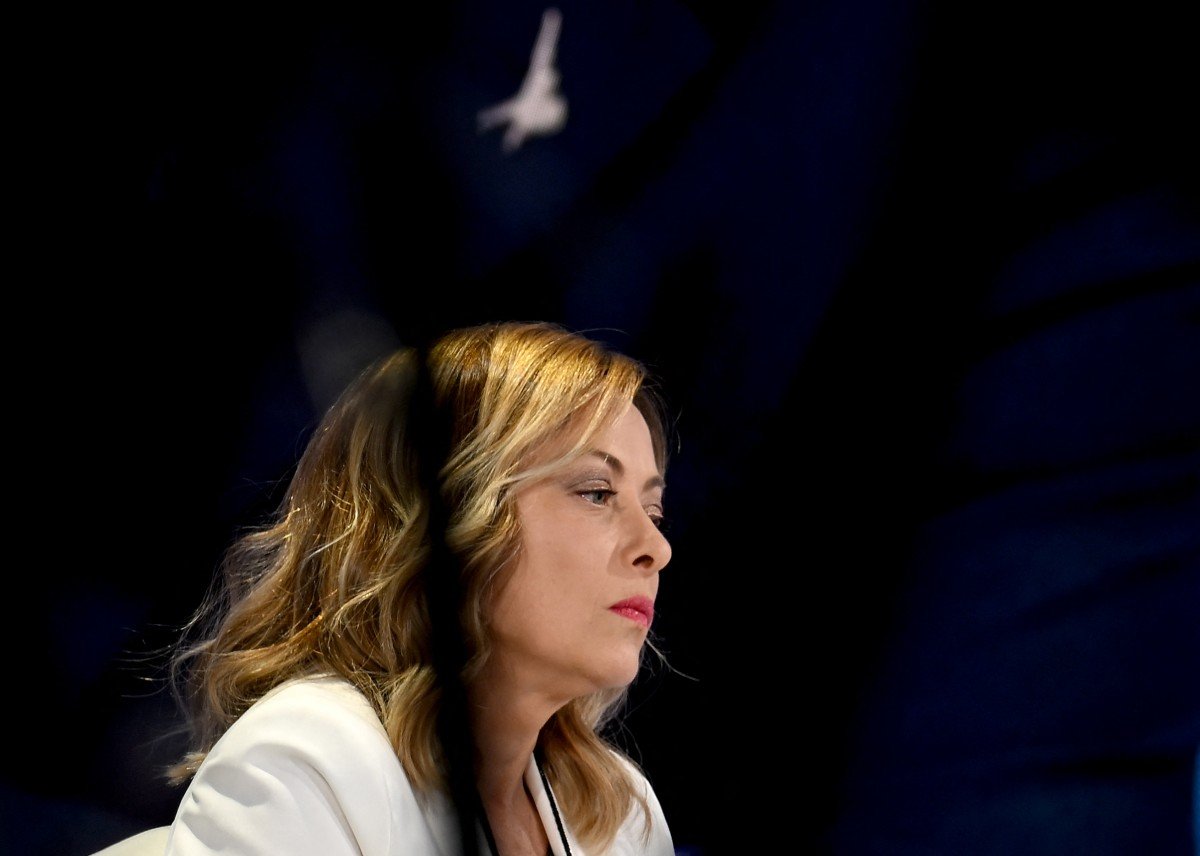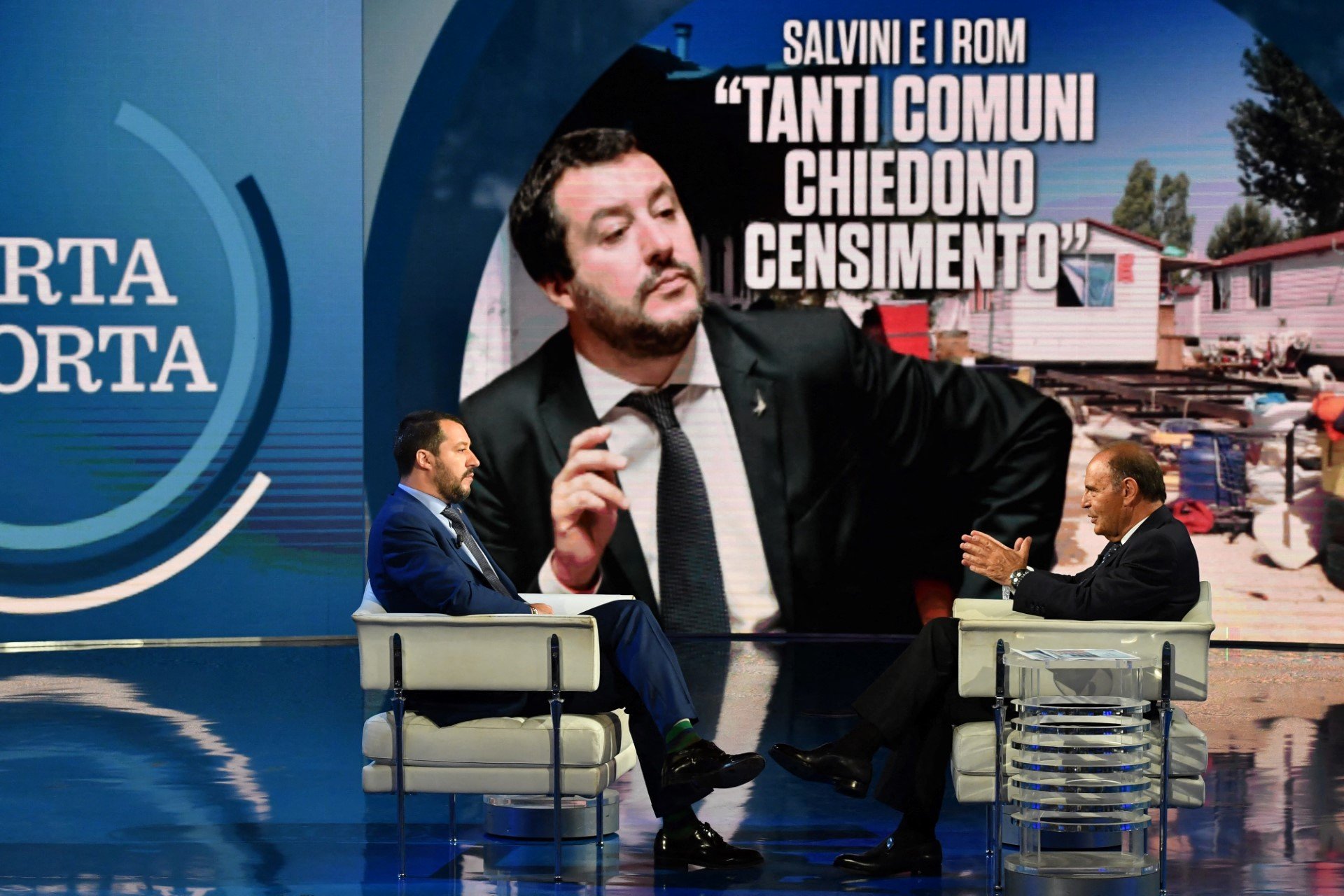European elections usually get a pretty low turnout, but this time is expected to be different. Voters across Europe realise there's a lot at stake.
The Brexit fiasco has polarised and strengthened opinions on the EU, and populism and the radical right are on the march across the bloc.
Many political commentators expect radical right-wing and Eurosceptic parties like Italy's League to make big gains at the European parliament this time around. Populist parties too hope to change the political landscape.
READ ALSO: Falling turnout at European elections: the reasons
League leader Matteo Salvini is one of the loudest voices among the European right-wing parties saying they want to “create a new Europe” more to their liking.
His party, the League, has been attempting to form an “international group of nationalists” across Europe, though it hasn't gained much traction,

Five Star Movement leader Luigi di Maio speaking to populist party supporters in Poland this week. Photo: AFP
And the Five Star Movement, which forms part of Italy's ruling coalition government alongside the League, is hoping that a new grouping of populists could shift the distribution of power in a future European parliament.
For Brits living across Europe, many of whom feel voiceless and ignored by British politicians over Brexit, the European election is seen as a chance to protest and to voice support for remaining in the European Union.
Can I vote?
All EU citizens are entitled to vote in either their home country or the country where they live. Registration for voting has now closed in Italy, but if you are already registered you can vote.
British citizens can still register to vote in the UK if they are not already registered, but will need to hurry up as registration closes on May 7th. Find out how to register in the UK here.
What are the big issues in Italy?
Judging by the current political rhetoric in Italy, you might imagine that by far the biggest concern among Italians would be immigration.
But polls show that Italians are much more worried about unemployment, with almost 50 percent saying it was the most important issue – way above the European average of 20 percent.

Immigration was the second biggest concern for Italians, with more than 30 percent of respondents saying it was their main worry.
However, the study found that voters in Italy, Spain and Greece are more worried about fellow nationals leaving their country than they are about new arrivals.
READ ALSO:
Who can I vote for?
These are the eight parties officially registered to field candidates for the European elections in Italy.
- The Democratic Party (Partito Democratico) – Italy's former ruling party, which has suffered a dramatic drop in popularity since it was elected in 2014, PD is a social democratic party now led by Nicola Zingerotti. They currently have 29 MEPS.
- Forza Italia – The conservative party led by disgraced ex-PM Silvio Berlusconi, who remains determined to make another comeback, and says he will continue campaigning despite currently being in ill health. Forza Italia aims to fight populism, while staying on good terms with Salvini's League. The party currently has 12 MEPS.
- The Five Star Movement (Movimento Cinque Stelle) – The populist party that is currently in government as part of a ruling coalition with the League is led by Luigi di Maio, who is also Italy's co-Deputy Prime Minister and Labour Minister. Di Maio has nominated five female candidates to lead his lists, all of whom were formerly unknown to voters: an entrepreneur, a professor, two civil servants and a journalist. M5S currently have 11 MEPS.
- The League (La Lega) – The right-wing populist party currently in a ruling coalition with M5S and led by Matteo Salvini, who is also Italy's co-Deputy Prime Minister and Interior Minister. Salvini tops the list for his party in all five Italian constituencies, despite saying he has no intention of returning to the European Parliament. The League currently has six MEPs.
- Brothers of Italy (Fratelli d'Italia) – A national conservative party led by Giorgia Meloni. They're known as the party fielding Mussolini's great-grandson as a candidate. They currently have five MEPs.'
- The Left (La Sinistra) – Not a party, but a left-wing coalition of parties formed to take part in the 2019 European Parliament election. The main members are the Italian Left and the Communist Refoundation Party. They now have three MEPs
- Green Europe – A green and progressive coalition of political parties in Italy taking part in the 2019 European Parliament election in connection with the European Green Party. It has two MEPs.
- More Europe – A centrist, liberal, pro-European party in Italy's centre-left coalition. The party's leader is Benedetto Della Vedova. It has two MEPs.

Matteo Salvini, leader of Italy's League, hopes right wing populism will change Europe. Photo: Alberto Pizzoli/AFP
Who is tipped to win?
Salvini's League is expected to make huge gains, with polls projecting they'll take 26 seats in the European Parliament – a huge increase on the six it currently has. Italian political analysts also believe the party will do well following recent local elections in Italy, after victories for the right-wing bloc the League is part of.
They're expected to be followed by their populist national government coalition partners M5S, and then PD, according to the poll by Quorum/Youtrend.

Italy votes on Sunday May 26th.
Would you like to see more political stories in The Local? If so, do you have any suggestions? Let us know.
READ ALSO: What you need to know about taking part in the European elections





 Please whitelist us to continue reading.
Please whitelist us to continue reading.
Member comments